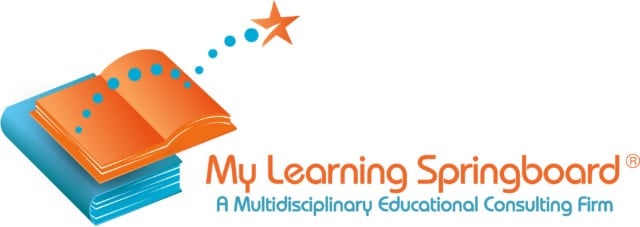 The Fast-Changing World of College Admissions
The Fast-Changing World of College Admissions
In today’s fast-changing world, Faya and I believe that a different approach to supplemental college counseling is necessary.
Our students live across the globe from NYC to LA, from London to Paris, from Dubai to Singapore, from Rio de Janeiro to Lisbon. And these students are often considering colleges and universities in more than one country, which most commonly includes the United States, the UK, Canada, France, Italy, and Spain.
There was a time when incoming freshmen represented a far less diverse population (broadly defined). When legacy status carried more weight. When development carried more weight. When independent schools were known to be feeders to certain colleges or universities. When a rolodex sat on your desk and the contacts didn’t change that often. When standardized test scores were an absolute requirement with no gray zone. When AP courses were the standard at independent and public schools, and SAT subject tests were available and abundant. When students and parents weren’t expecting very much differentiation or individualization from colleges and universities regarding learning support, housing options, counseling services, and flexible timelines to complete degrees.
That is no longer the situation. All of the above has changed, and it continues to do so. Admissions policies are subject to change year over year, and it seems that nothing has stayed constant for the last four years. Today’s US college admissions process, and many European colleges (not including Bocconi in Milan), are driven by a holistic review process (of varying degrees). Geopolitics and social issues impact preferred schools from one admissions season to the next. Global citizenship means that students are looking at a diversified college list in terms of geography. And colleges and universities regularly make changes to their program offerings, courses and majors, and faculty in response to an evolving economy, new career paths and fields, and consumer expectations.
Global College Exploration
No one supplemental college counselor can be a walking encyclopedia for every college, in every location, and at any moment in time. Given how diversified students’ interests are likely to be, a strong research partner and mentor is a better expectation. Successful supplemental college counseling today requires college counselors that are more nimble, more strategic, more tenacious, more technologically-savvy, and more informed than a college counselor idling in pre-pandemic norms. It’s simply too risky and unrealistic in today’s college environment to only apply to Ivy League schools, for example.
Generally speaking, our students focused on US colleges are applying to 15 schools on average. The UCAS system in the UK only allows for 5 selections. Our students considering Spain or Italy or France, for example, are usually only seriously considering a handful of colleges or universities. Whether we’re pursuing a US-based college process only or a bifurcated or trifurcated approach that spans multiple countries, we’re usually considering 12-15 colleges or universities in total.
Supplemental College Counseling: Checks and Balances
The college application process has checks and balances. Various school-based stakeholders bring different perspectives to the table, including a school college counselor, dean, advisor, or other administrator. These faculty members hold a confidential, big picture view of the entire senior class and competing priorities. They typically have a strong stance on which colleges or universities a student should apply to, which college or university should be prioritized for a binding Early Decision pick, how many colleges or universities in total the school will support, and ultimately they have to endorse the final working list. Their intel is important and useful, but sometimes pushback and negotiation is necessary.
Among their many responsibilities, school college counselors directly facilitate on-site college visits and communications with regional representatives from colleges and universities. They write a necessary student recommendation, they gather – and potentially backchannel – with individual teachers writing recommendations, they shepherd all of the official school documentation through school-based portals, and they communicate the context of their school’s grading system and course offerings. These are critical responsibilities that bolster support for a particular student and the school’s brand and reputation.
With the above responsibilities covered at school, families and private college counselors can focus on other matters. Our approach to supplemental college counseling continues to evolve as we observe changes and intentionally differentiate the experience for each of our students in order to meet them where they are. In large part, we’re focused on the process skills related to the college application process as well as fact-checking or balancing advice that may be coming from other well-intentioned inputs, including school faculty, other parents, other family members, or friends.
Differentiating The Experience With Us
For the families that choose to work with Faya and me on supplemental college counseling, they’re not usually out in left field unsure of what a working college list might include. Creating an initial working college list is important and necessary, but it’s the sum total of all of the components described below that make our process dynamic and unique. Digging into program specifics, comparing and contrasting majors or courses of study, and exploring the resources available at a particular institution is far more interesting work. Application processes and portals have variations, but knowing a portal inside out doesn’t define a good college counselor. Portals change. Application processes change.
What defines a great college counselor – whether you’re focused on US college admissions, European college admissions, or both – is a professional partner with a sufficiently broad perspective and track record of admissions success who can effectively guide your family through all the twists and turns that will surely arise along this journey while keeping you and your student focused, motivated, and engaged. Change is constant in today’s world. Let’s lean in together and go for it!
Our success is the result of hard work, flexibility, dedication to each family, and all of the following:
- Our flexible approach and diversified expertise provides families with the option of working on specific aspects of the process or working comprehensively (from grades 7-12), which may include test preparation, private tutoring, and/or independent study and mentorship as well as middle school planning, high school planning, and summer enrichment or pre-college program planning in order to authentically build a strong college application.
- Our relational and motivational success with students and parents.
- Our keen ability to spot trends, adapt to trends, and avoid “traps” that result from misunderstandings and misconceptions about changes and the current climate.
- Our balanced approach to managing an application strategy that is sufficiently broad in order to mitigate disappointment and maximize options given each student’s individual context.
- Our expertise with learning differences and scaffolding instruction and tasks to meet the needs of each student.
- Our effective and tenacious research skills in order to curate a working list of colleges and universities for each student and present the information in a meaningful way, taking into account any customizations that a family may request.
- Our integration of executive function coaching as related to the project management inherently involved with the college application process.
- Our intentional digital coaching to help students develop necessary, lifelong skills for: 1) subtasking a larger project, 2) developing email management skills, 3) developing formatting and proofreading skills within Google Documents and Google Sheets, 4) developing organizational skills for Google Drive at large, 5) aggregating online research and virtual college visit notes, and 6) managing various types of portals and being systematic and accurate.
- Our success with helping students to tailor their writing to a specific audience of college admissions officers and providing explicit instruction regarding grammar, sentence fluency, organization, and word choice.
- Our track record with helping families to strategically manage any outreach or networking that may be applicable.
- Our creativity with helping students and parents to troubleshoot and navigate any necessary negotiations or courageous conversations with school counselors, deans, advisors, or other faculty members that may arise during the college application process.
- Our compassionate and patient approach to facilitating decision making and any related philosophical conversations in order to compare and contrast possible pathways.
- Our hypersensitivity to privacy and confidentiality on behalf of each student and family.
Scheduling An Appointment
Whatever your college counseling needs or wonders may be, please don’t hesitate to contact us. An initial planning meeting is usually the best way to get started. These meetings can be 30, 45, or 60 minutes by Zoom, by phone, or in person per a family’s preference. A single planning meeting allows us to talk more substantively about your family’s specific needs, priorities, and goals so that we can determine possible next steps. We’re committed to developing unique solutions for unique learners!
We look forward to hearing from you!
Warm regards,
Brad Hoffman and Faya Hoffman,
Co-Founders and Board Certified Educational Planners, My Learning Springboard

